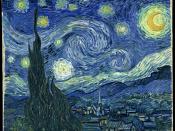Bipolar Disorder
Bipolar disorder also known as Manic Depressant Disorder is a mood disorder that involves episodes of both serious mania and depression. The person's mood will swing from being excessively high and irritable to sad and hopeless depression and back again. They will usually experience periods of normality in between. This distressing and disruptive disease affects men and women equally. These erratic mood episodes can last for a few days to as long as a couple of months, especially when left untreated. Your average Bipolar patient is said to have an average of about ten mania or depression episodes in a lifetime.
It is Obvious to most experts that there is no single cause for Bipolar, but that many factors work together to ignite the disease, They believe that the disease is caused by altered level of neurotransmitters in the brain. Therefore, some of the first signs of illnesses are triggered by life's stressful events, which cause changes in the brain and make the next episodes more likely and more severe.
Bipolar is believed to be inherited and tends to run if families. More than two thirds of people with the illness have at least one relative with the disorder or a mental illness. This definitely suggests that genetics are involved. Based on scientists thinking and today's theories, if you are Manic-Depressant, you were born with a Bipolar time bomb in your brain and something in your life set it off. While this is the most up to date knowledge, scientists could refine this theory at any time.
Bipolar disorder is the third most common mood disorder after major depression and dysthymic disorder. It affects approximately 2.3 million American adults or 1.2% of the U.S population age 18 and older. The average age at onset for a manic episode...


